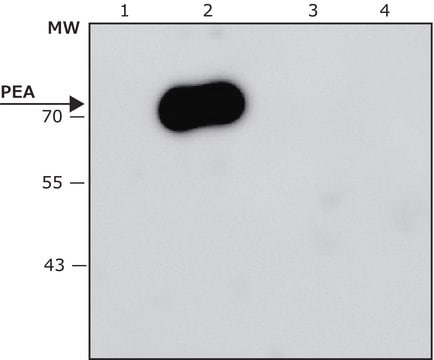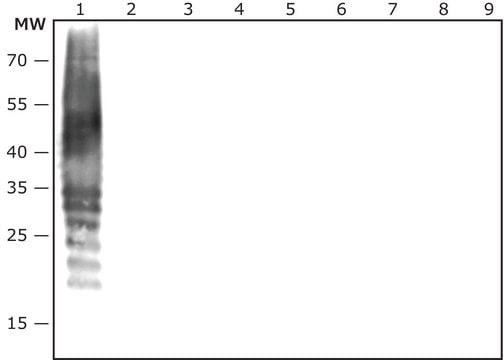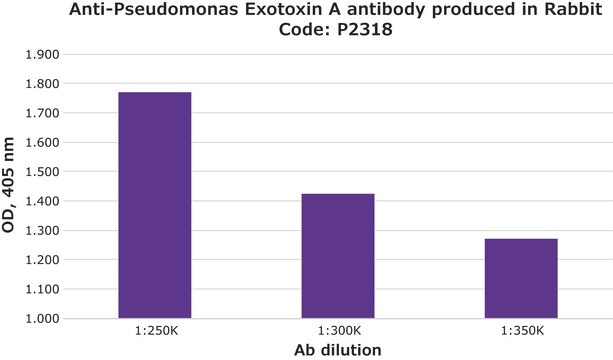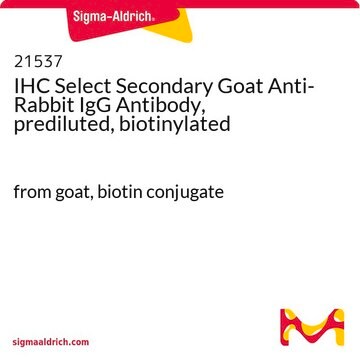SAB4200866
Anti-Pseudomonas aeruginosa antibody produced in rabbit
IgG fraction of antiserum
About This Item
indirect ELISA: 1:5000- 1:0,000 using whole dead P.aeruginosa bacteria for coating
Productos recomendados
biological source
rabbit
Quality Level
antibody form
IgG fraction of antiserum
antibody product type
primary antibodies
form
liquid
species reactivity
Pseudomonas aeruginosa
packaging
pkg of 100 μL
pkg of 25 μL
concentration
~1 mg/mL
technique(s)
immunoblotting: 1:10,000-1:20,000 using P.aeruginosa lysate
indirect ELISA: 1:5000- 1:0,000 using whole dead P.aeruginosa bacteria for coating
shipped in
dry ice
storage temp.
−20°C
target post-translational modification
unmodified
General description
patients every year and are accounted for around 90,000 deaths annually.3
It forms highly resistant biofilms on human tissues such as the lungs of CF patients or medical surfaces. Once P. aeruginosa infection is established it is extremely hard to eradicate.3
The genome of P. aeruginosa encodes a vast arsenal of virulence factors. However, the P. aeruginosa isolated from chronic infections expresses less virulence factors in comparison to isolates from acute infections but more readily form biofilms.1,4-6
Specificity
Application
Biochem/physiol Actions
Antibiotic resistance to many classes of antibiotics is a major challange in P. aeruginosa treatment. P. aeruginosa possesses several resistance mechanisms such as, low permeability of the outer membrane,
expression of membrane efflux (Mex) pumps, and ß-lactamase and AmpC that hydrolases ß-lactam antibiotics such as, penicillin9. In addition, as a result of genetic transfer new resistant strains emerge constantly. Therefore, finding new prevention and treatment strategies for P. aeruginosa infection is of high importance.1
Physical form
Storage and Stability
Disclaimer
¿No encuentra el producto adecuado?
Pruebe nuestro Herramienta de selección de productos.
Storage Class
12 - Non Combustible Liquids
wgk_germany
WGK 1
flash_point_f
Not applicable
flash_point_c
Not applicable
Elija entre una de las versiones más recientes:
Certificados de análisis (COA)
Lo sentimos, en este momento no disponemos de COAs para este producto en línea.
Si necesita más asistencia, póngase en contacto con Atención al cliente
¿Ya tiene este producto?
Encuentre la documentación para los productos que ha comprado recientemente en la Biblioteca de documentos.
Nuestro equipo de científicos tiene experiencia en todas las áreas de investigación: Ciencias de la vida, Ciencia de los materiales, Síntesis química, Cromatografía, Analítica y muchas otras.
Póngase en contacto con el Servicio técnico








